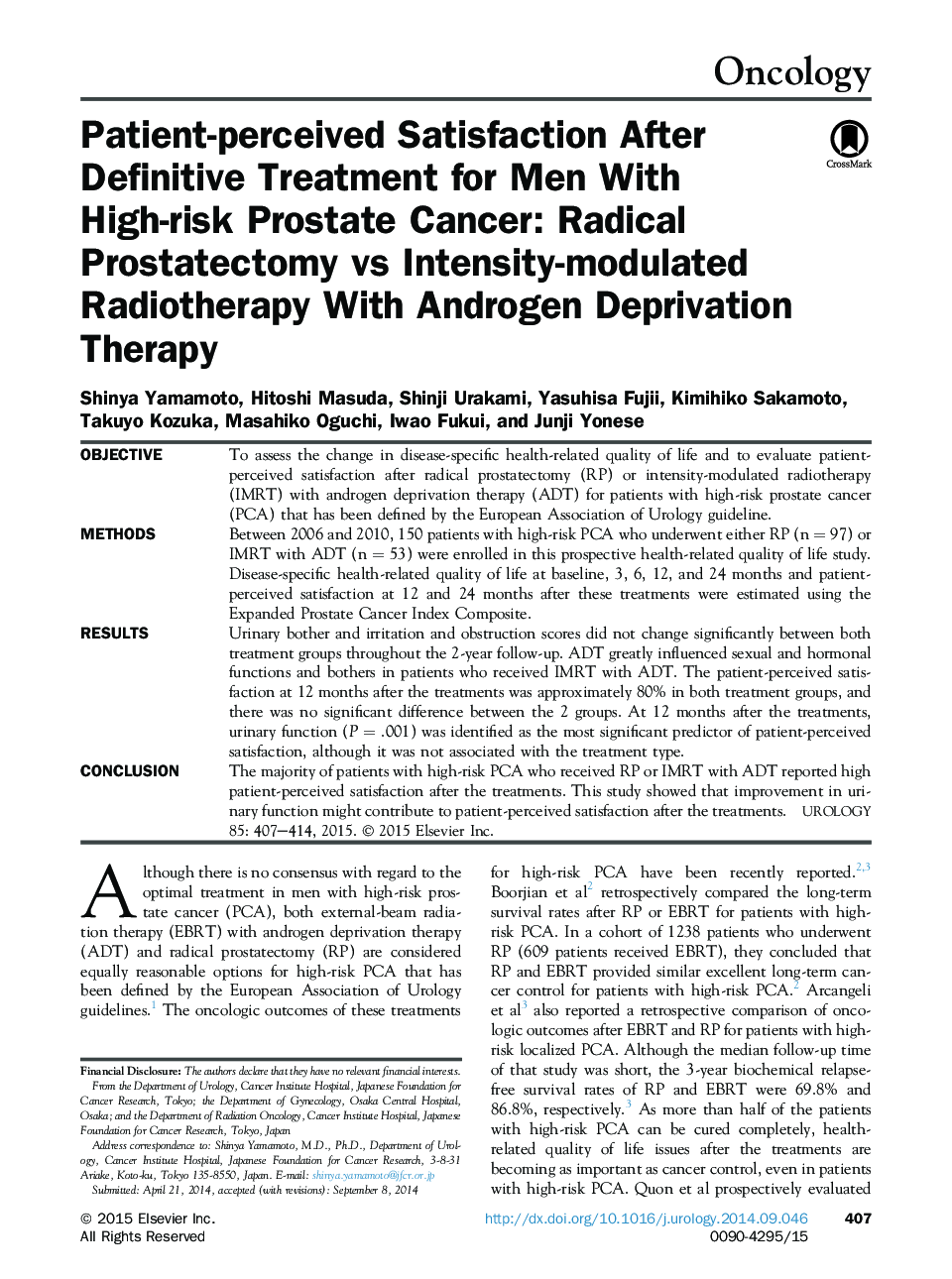| Article ID | Journal | Published Year | Pages | File Type |
|---|---|---|---|---|
| 3899328 | Urology | 2015 | 8 Pages |
ObjectiveTo assess the change in disease-specific health-related quality of life and to evaluate patient-perceived satisfaction after radical prostatectomy (RP) or intensity-modulated radiotherapy (IMRT) with androgen deprivation therapy (ADT) for patients with high-risk prostate cancer (PCA) that has been defined by the European Association of Urology guideline.MethodsBetween 2006 and 2010, 150 patients with high-risk PCA who underwent either RP (n = 97) or IMRT with ADT (n = 53) were enrolled in this prospective health-related quality of life study. Disease-specific health-related quality of life at baseline, 3, 6, 12, and 24 months and patient-perceived satisfaction at 12 and 24 months after these treatments were estimated using the Expanded Prostate Cancer Index Composite.ResultsUrinary bother and irritation and obstruction scores did not change significantly between both treatment groups throughout the 2-year follow-up. ADT greatly influenced sexual and hormonal functions and bothers in patients who received IMRT with ADT. The patient-perceived satisfaction at 12 months after the treatments was approximately 80% in both treatment groups, and there was no significant difference between the 2 groups. At 12 months after the treatments, urinary function (P = .001) was identified as the most significant predictor of patient-perceived satisfaction, although it was not associated with the treatment type.ConclusionThe majority of patients with high-risk PCA who received RP or IMRT with ADT reported high patient-perceived satisfaction after the treatments. This study showed that improvement in urinary function might contribute to patient-perceived satisfaction after the treatments.
